
What We Learned: Expertise and Episodes from Three Years of ‘Factory Talk’
On IndustryWeek: What We Learned: Expertise and Episodes from Three Years of ‘Factory Talk’ The video series Factory Talk began as a collaborative project between me and IndustryWeek to bring voices of leadership from the factory floors to all of you. These interviews were meant to focus on practical techniques
Read More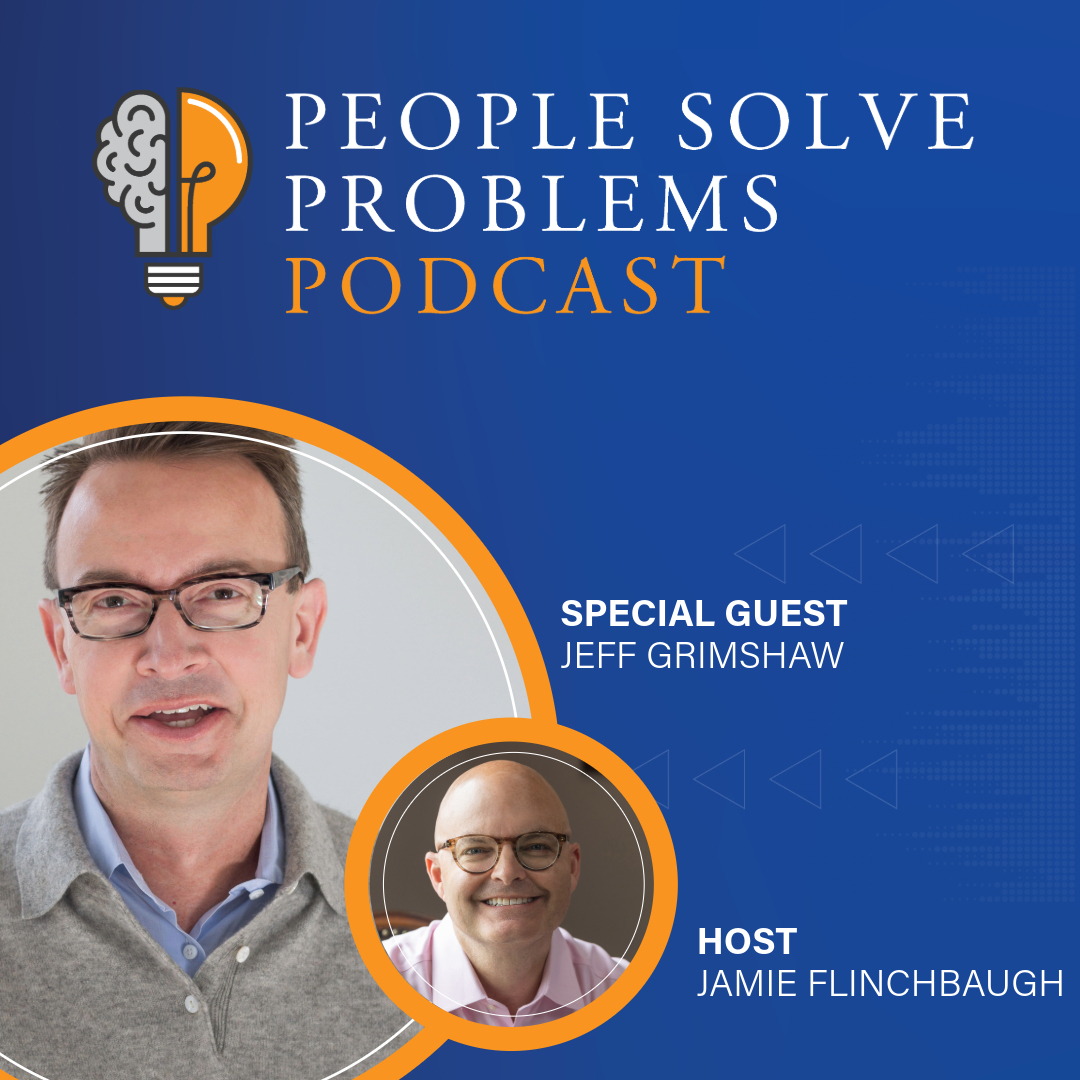
Jeff Grimshaw of MGStrategy: Cultivating Agile Cultures Through Risk
In this episode of People Solve Problems, host Jamie Flinchbaugh welcomed Jeff Grimshaw, Principal at MGStrategy, for a thought-provoking conversation. Jeff Grimshaw, who has dedicated over 25 years to assisting leaders worldwide in aligning their organizations’ people, strategy, and culture for better business outcomes, shared his insights on creating environments
Read More
How to Perform a Time Leadership Portfolio Analysis
If you’re just doing your job the best you can, then this article may not be for you. However, if you have multiple things going at once, from side hustles to learning projects, then what follows can be tremendously useful. For me, it is now an annual reflection and planning
Read More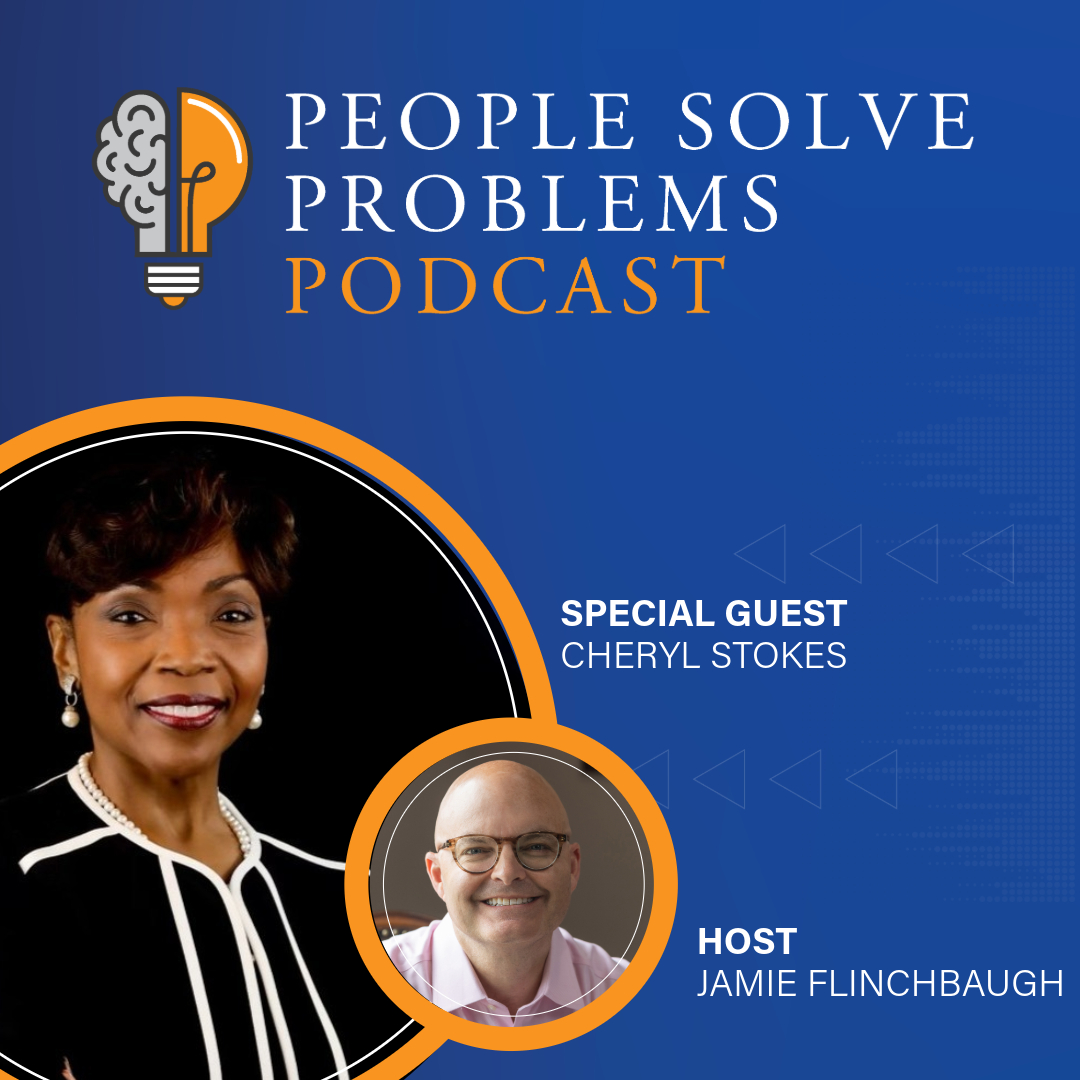
Innovating the Future: Cheryl Stokes on Inclusive Leadership at CNEXT
Cheryl Stokes, the CEO of CNEXT, joined Jamie Flinchbaugh on his podcast “People Solve Problems” to share her insights into corporate education, leadership development, culture change, diversity, equity, inclusion, and belonging. With a rich background that spans over two decades, Cheryl has significantly contributed to these fields through her
Read More
19 Graceful Ways To Ensure Recognition For Professional Contributions
On Forbes: 19 Graceful Ways To Ensure Recognition For Professional Contributions Being recognized for one’s professional contributions is not simply a matter of fair acknowledgment; it can also be a key factor in career advancement. However, many professionals find it challenging to strike the delicate balance between ensuring they receive
Read More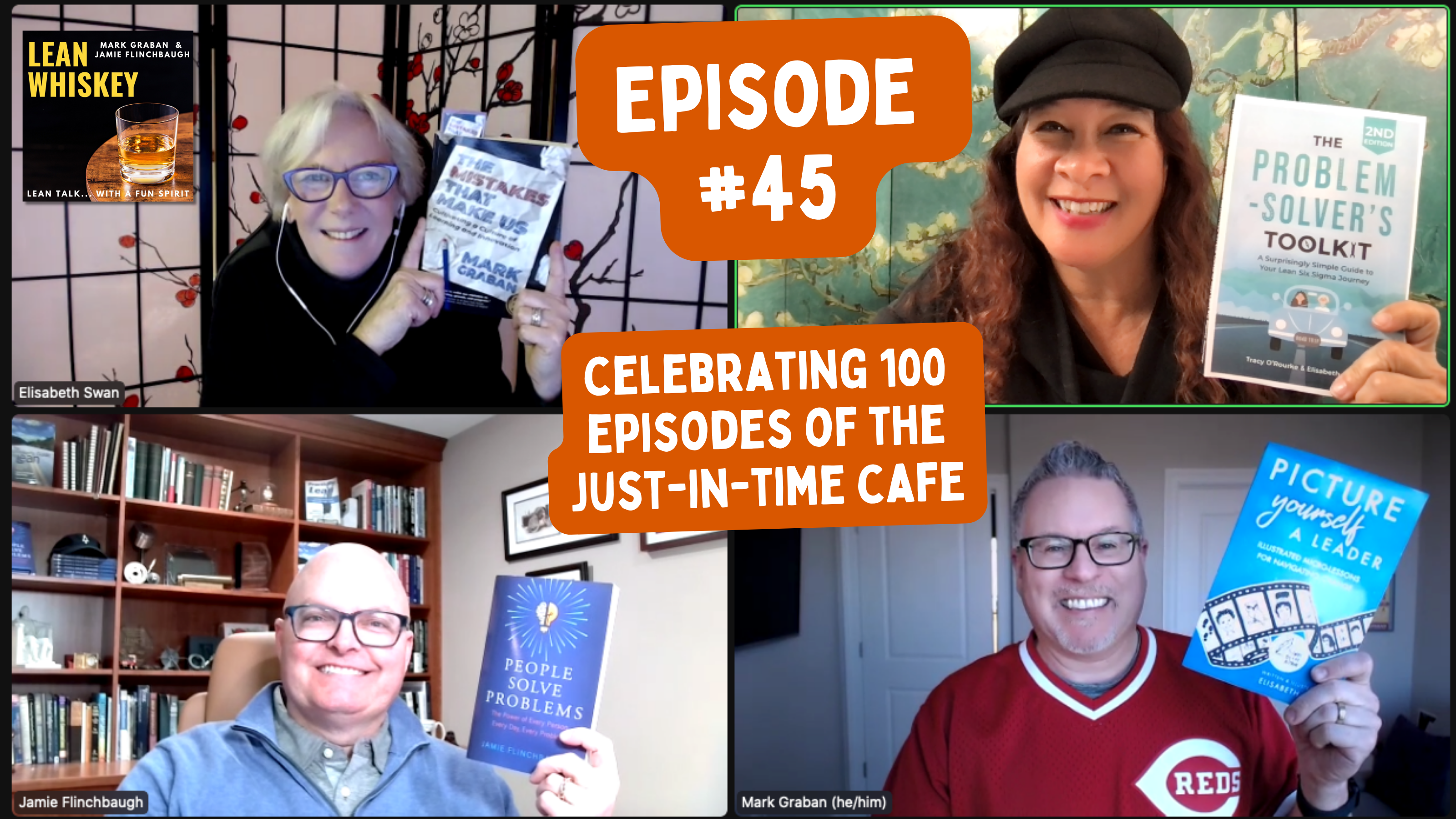
Lean Whiskey Episode 45
Episode 45: “Crossover event: Just-in-Time Cafe and Lean Whiskey” In Episode 45, Jamie Flinchbaugh and Mark Graban join the Just-in-Time Cafe team of Elisabeth Swan and Tracy O’Rourke as a special nod to their 100th Episode, while also having a chance to toast Mark’s accomplishment of 250 episodes of My
Read More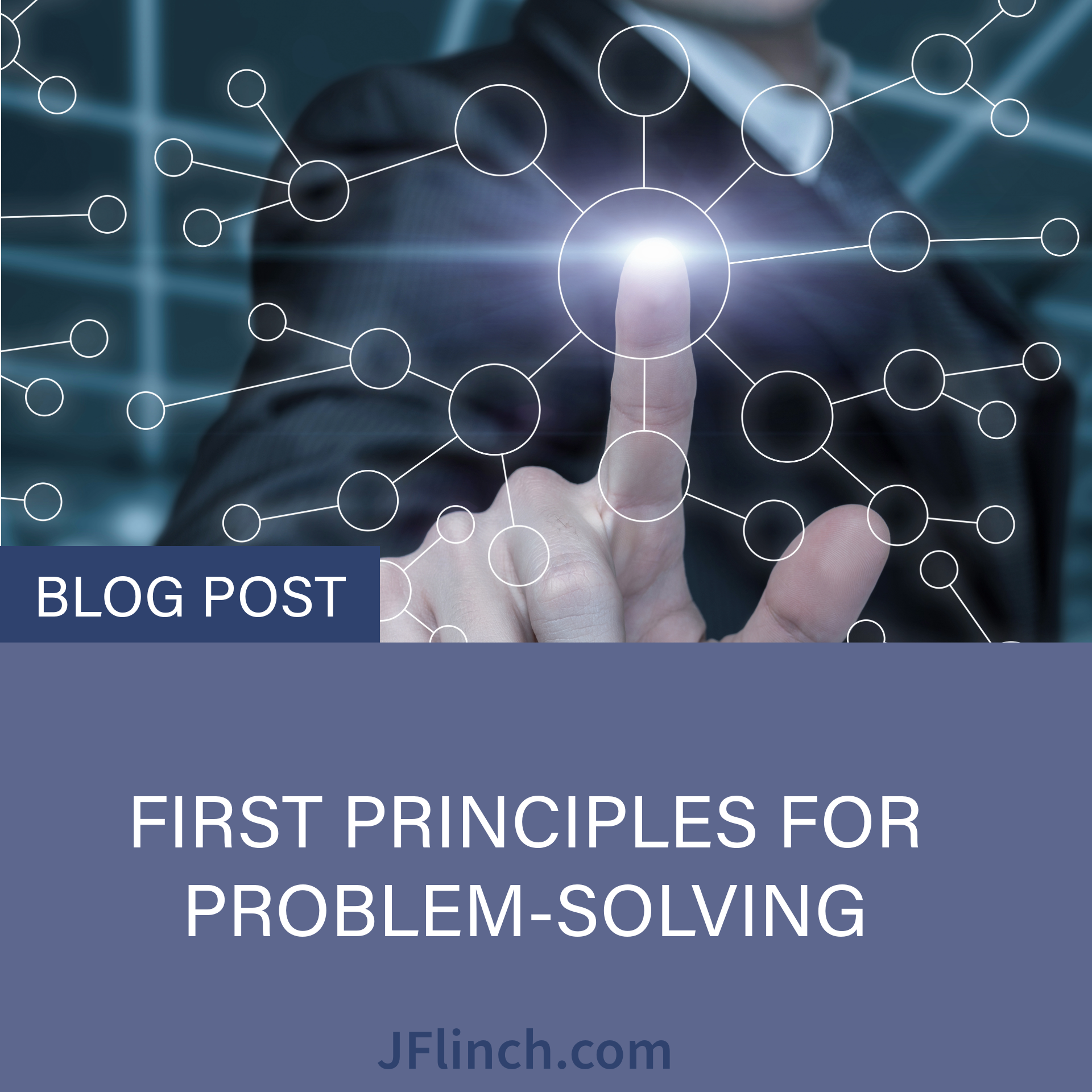
First Principles for Problem-Solving
When I wrote my first draft of People Solve Problems, I was very clear that the tools were not where the magic was but I still referred to my favorite tools and methods a bit too often. After a structural edit and some great feedback, I committed further to write
Read More
Forget Time Management—Manage Your Attention
On Forbes: Forget Time Management—Manage Your Attention Baseball players can easily hit home run after home run in batting practice. But things are different when it’s the bottom of the ninth and the game is on the line in a stadium full of people cheering (or maybe booing). The difference
Read More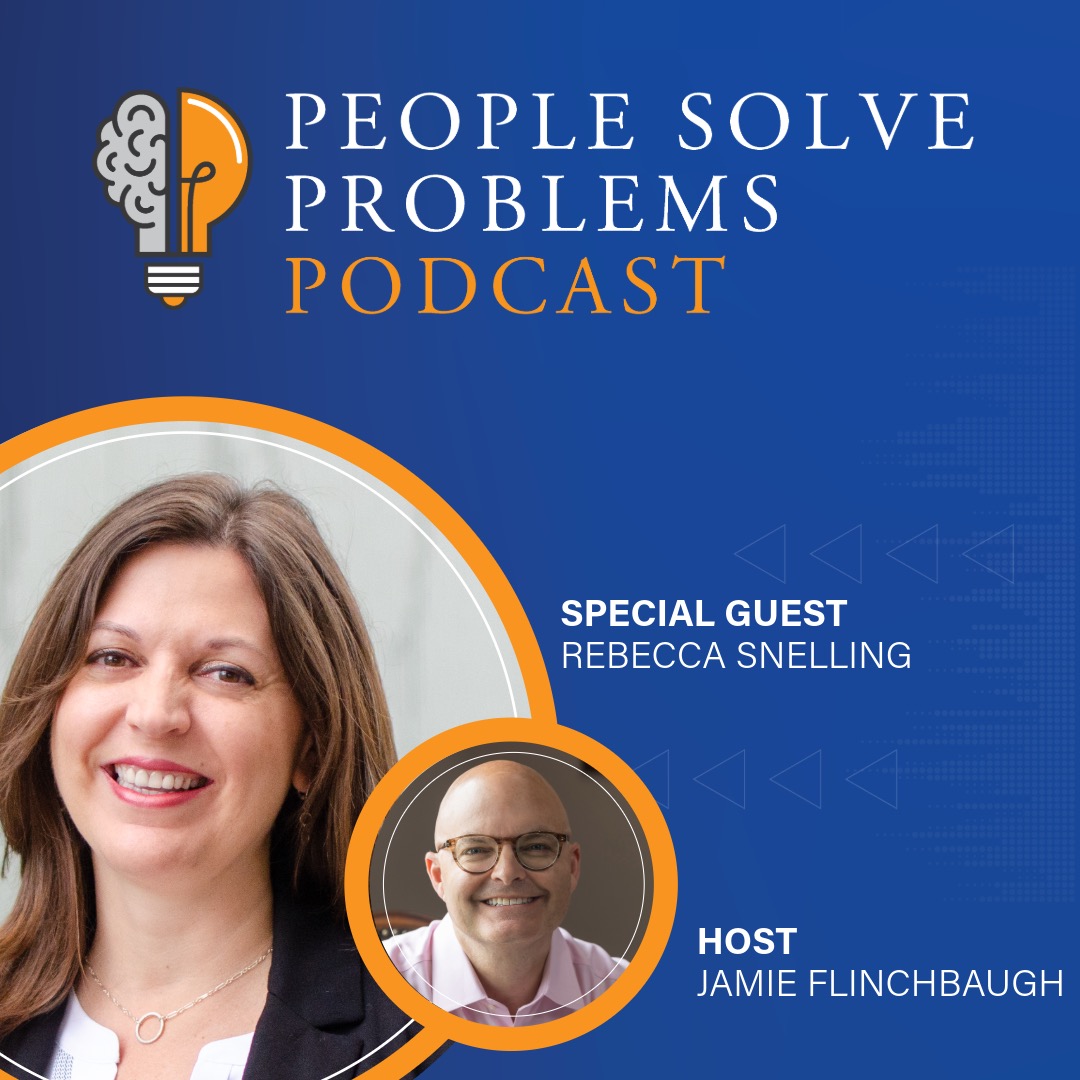
Inclusive Problem-Solving and Culture Transformation: Insights from Rebecca Snelling of RS Consulting
In this episode of the People Solve Problems podcast, Jamie Flinchbaugh welcomes Rebecca Snelling, the owner of RS Consulting. The conversation focuses on the themes of collaboration, problem-solving, leadership, and the importance of a culture that supports these endeavors within the design and construction industry. Rebecca brings a wealth of
Read More
16 Important Skills Professionals Need To Build ‘Future-Proof’ Careers
Everyone is so busy trying to keep up, but how do you get out ahead? How do you ‘future-proof’ your career? Some skills, capabilities, and perspectives are timeless. You don’t have to be a futurist or a fortune teller to be prepared for the future. Here are 16 perspectives, including
Read More